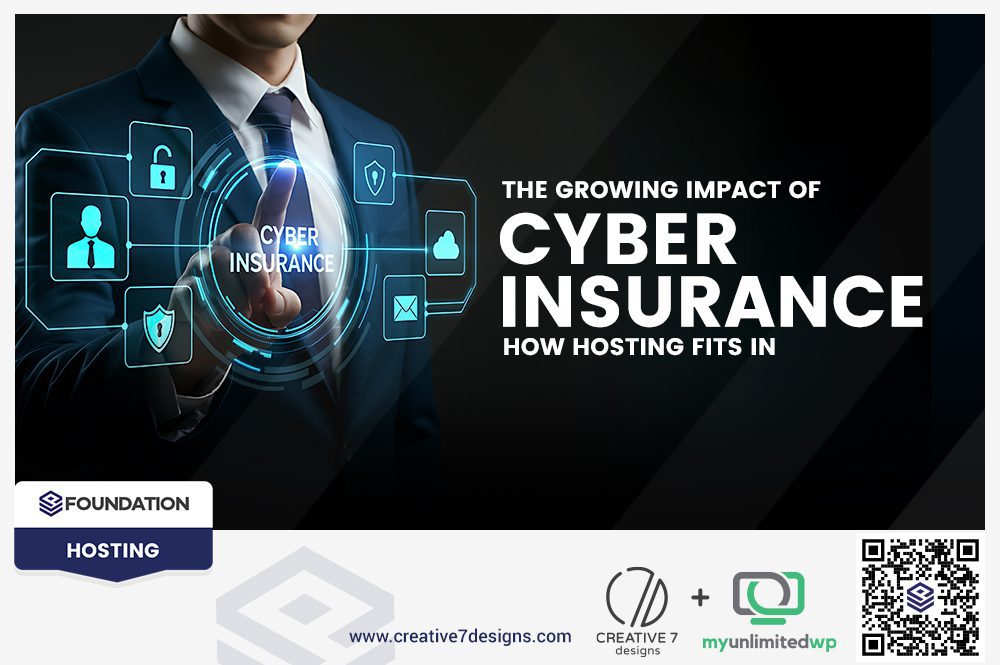Overview: Telling small businesses to buy cyber insurance isn’t enough — strong hosting is just as essential. Discover how the right hosting provider adds a critical layer of security to keep your business protected online. Read on!
Cyber attacks and data breaches aren’t just headlines — they’re real threats facing businesses every day. Financial losses, reputational damage, and legal issues have made cybersecurity a priority, with many companies turning to cyber insurance for financial backup.
But here’s where it gets interesting: choosing a secure hosting provider can be just as important as having cyber insurance. Hosting plays a major role in preventing attacks before they happen, adding an essential layer of protection.
In this post, we’ll look at how cyber insurance and secure hosting work together to keep your business safer!
The Rise of Cyber Insurance
With more businesses adopting digital operations, cyber insurance has gained prominence as a crucial safeguard. This specialized insurance covers costs associated with cyber incidents — whether it’s data recovery, legal fees, notification to affected parties, or even ransom payments in cases of cyber extortion. However, cyber insurance is not a “catch-all” solution.
Insurers are increasingly scrutinizing their clients’ security measures, rewarding those with robust cybersecurity practices with better premiums and coverage options.
>> Related Reading: Cyber Insurance: Risks & Trends
Why Cyber Insurance Isn’t Enough
While cyber insurance offers financial relief after an incident, it doesn’t prevent cyber attacks. To minimize risk truly, companies need a proactive approach that combines cyber insurance with solid cybersecurity practices — and this is where secure hosting becomes invaluable.
A reliable hosting provider should prioritize security, implementing stringent data protection measures that make it significantly harder for attackers to gain access. From regular security updates and data encryption to server monitoring and multi-layered firewalls, these services create the first line of defense, reducing the likelihood of a breach and enhancing your cyber insurance profile.
Are you a small to mid-sized business owner? Here’s why Telling Small Businesses to Buy Isn’t Enough
The Role of Hosting in Cyber Security
When it comes to cybersecurity, hosting isn’t just about where your website lives; it’s about how secure that “home” is. Let’s look at some ways hosting providers can enhance your security:
Data Encryption: Top-tier hosting providers use encryption to protect your data while it’s in transit and at rest. This means sensitive information is shielded from prying eyes, reducing the risk of data theft.
Firewall Protection: Firewalls are crucial for filtering out malicious traffic before it even reaches your servers. A hosting provider with advanced firewall capabilities ensures that your site stays secure from common threats like DDoS attacks and SQL injections.
Regular Backups: Should a cyber incident happen, a hosting provider that offers regular backups can help you recover data quickly. This minimizes downtime and helps prevent data loss, a feature especially valuable for compliance and regulatory requirements.
Monitoring and Incident Response: Advanced hosting providers monitor server activity 24/7, allowing them to detect suspicious activity early on. Some providers even offer incident response services, which can contain and mitigate threats before they escalate.
How Hosting & Cyber Insurance Work Together
When paired, secure hosting and cyber insurance provide a powerful defense against cyber risks. Insurers often assess a company’s hosting environment when determining coverage terms and pricing. A strong hosting setup can improve your cybersecurity profile, leading to better insurance options and more affordable premiums.
For example, if your hosting provider offers DDoS protection, multi-layered firewalls, and SSL certificates, this demonstrates a commitment to security that insurance providers value. In turn, this partnership ensures that you have a proactive defense (hosting) alongside a reactive one (insurance), creating a well-rounded approach to cybersecurity.
In Summary
As cyber threats continue to evolve, both the insurance and hosting industries are adapting. We’re likely to see tighter integration of these services, with hosting providers offering more specialized, compliance-oriented services for businesses in highly regulated sectors. From advanced cloud-based solutions to AI-powered threat detection, hosting is transforming into a more sophisticated layer of protection.
Excited to see how a reliable and secure hosting solution could be the game changer for you? We’re all yours to help your business set the Foundation it needs!


